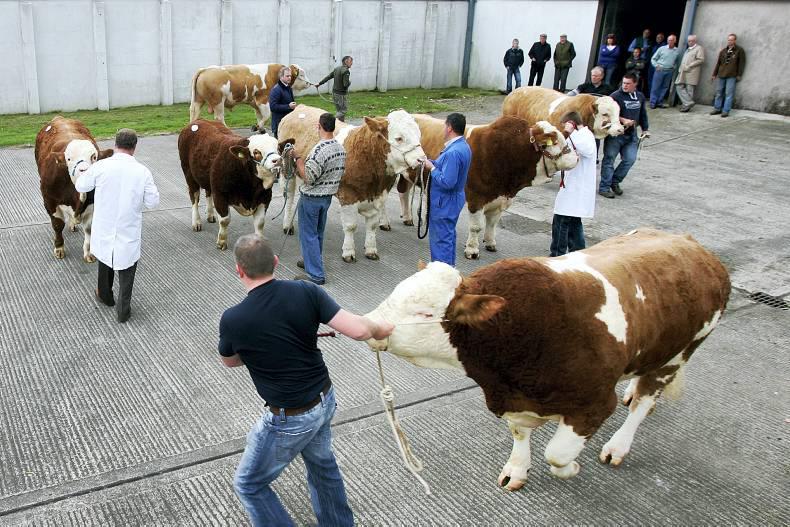“I recently got a letter from the ICBF stating that a bull I had purchased is not actually the breeding the farmer who sold him to me said he was. I paid big money for this bull that ended up breeding very poor calves. I contacted the breeder who is very slow to cooperate in identifying what sire my bull may actually be bred from and is not willing to compensate me. Where do I stand legally?”
As part of the Beef Genomics Scheme, all participating farmers with a stock bull had to submit an ear-tag sample to test for parentage data. One of the advantages of the use of genomics is the ability to validate the parentage of animals through the DNA samples ICBF have collected, something that was more difficult to do in the past.
This will help farmers minimise the inevitable mismatches that can occur on farms (for all sorts of reasons) when allocating sires and dams to calves. ICBF said that the data analysed shows only approximately 5% of the sires checked as part of the 2014 scheme were found to be inconsistent with what parentage data was actually recorded in birth registrations and that this rate was low by international standards.
There are many reasons for these mismatches. For example, human error could have resulted in the incorrect semen being inseminated during AI, a different stock bull or strong bull weanling may have gotten access to the dam and unfortunately it may be the case that a breeder may have registered the sire’s details incorrectly to increase its breeding credentials.
However, this is of no real concern to you, as your contract was with the farmer who sold you the bull and it is sufficient that you have credible evidence now through the DNA sample showing that the bull is no longer as he was described.
The farmer who sold you the bull cannot try to put the blame on someone else. Your contract was with him and because the bull is of a different breeding from that which induced you into buying in it the first place, it is a breach of contract and you should be compensated accordingly. It is open to the farmer who sold you the bull to go after whoever he claims was at fault.
Pedigree sale
If you bought the bull at a pedigree sale, you should review a copy of the sales catalogue/terms and conditions for the sale at which you purchased the bull. The sales catalogue for society premier bull sales often provide a guarantee by the vendor that the pedigree of the animal is correct and that the vendor is responsible for any error, omission or misstatement.
Further, some societies reserve the right to take blood samples, hair samples and/or tissue samples from any animal presented at shows and sales and to have the sample(s) independently analysed at a certified laboratory and that a sample will also be given to the vendor for his/her own use.
You should contact the society to confirm whether or not they took such a sample. The terms and conditions of sale may also provide that should any dispute arise as to the identification of any animal exposed for sale or as to the pedigree of any such animal, such dispute shall be referred to the council of the society or to such sub-committee as the council may appoint as arbiters or arbitrators and their decision shall be final.
You should check the terms and conditions of sale to determine whether such a dispute resolution mechanism applies as you may be obliged to refer the matter to the society and/or to an arbitrator rather than going down the court route.
Bull bought privately
Most private sales are agreed orally between the buyer and the seller and it is each person’s word against the other in the event of a dispute. However, you should have documentary evidence at this point to back up your claim, ie the card will show the bull being of a certain pedigree while the notification from the ICBF shows something different.
If the seller induced you into buying a bull by stating that it was a certain breed, it may be regarded as a warranty given at the time of sale. Consequently the seller who provided this information should be held liable for loss and damage arising from the fact that the bull was not of the breed which he was sold as. However, it would be open to the seller to carry out another DNA test to verify the accuracy of the initial test.
Recourse to the courts
Disputes such as these should be resolved between the parties whereby the seller will take back the bull and refund the amount paid for the bull. It will be more difficult to claim for consequential loss, eg the bull breeding very poor calves, as there can be various reasons for poor-quality calves apart from the sire.
However, if you cannot reach agreement as to the level of compensation payable, it is open to you to bring proceedings in the District Court for breach of contract if the claim is for less than €15,000. If the claim exceeds this, it may be necessary to go to the Circuit Court. If the claim is for €2,000 or less, it may be possible to pursue a claim through the small claims procedure.
The District Court Clerk, called the Small Claims Registrar, processes small claims. Where possible, the registrar will negotiate a settlement without the need for a court hearing. If the matter cannot be settled the registrar will bring your claim before the District Court.






 This is a subscriber-only article
This is a subscriber-only article










SHARING OPTIONS: